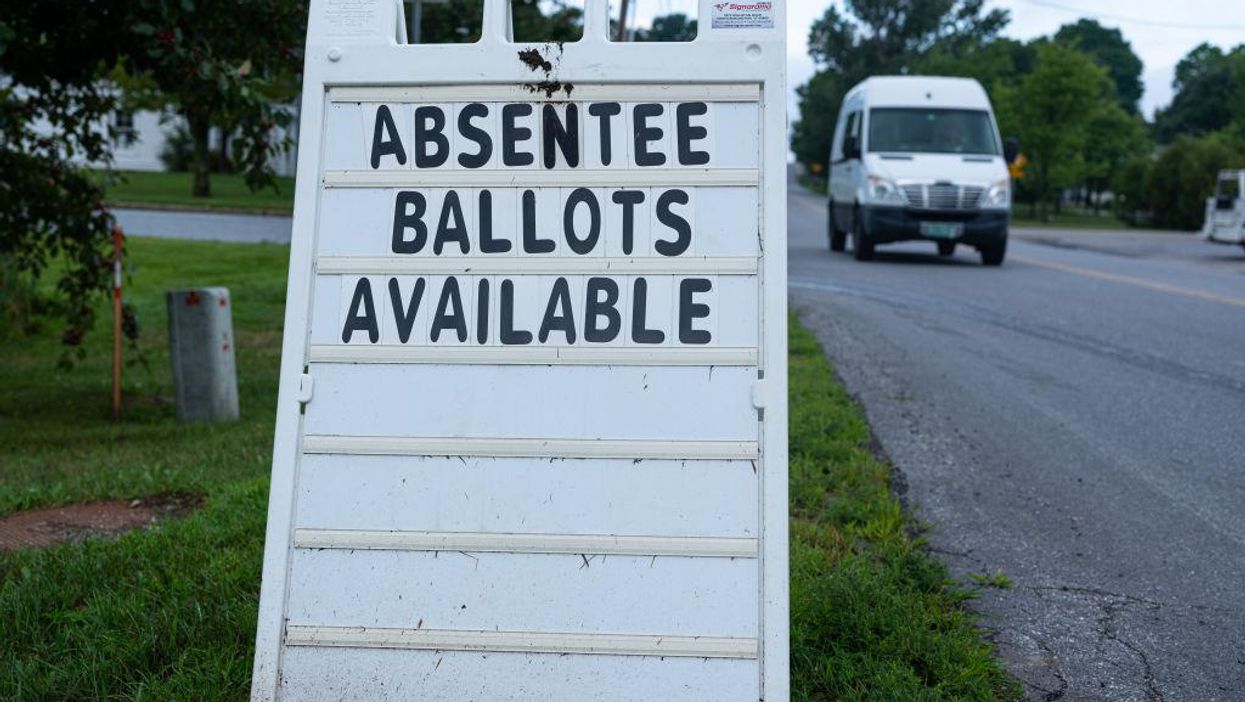
Robert Nickelsberg/Getty Images

While many Republican governors have signed bills implementing new regulations on mail-in and absentee voting, Vermont's GOP governor wants to conduct his state's elections entirely by mail.
Gov. Phil Scott (R) signed legislation last June that requires local election clerks to mail ballots to all active, registered voters ahead of the biannual statewide elections. On Friday he signed another bill into law that allows municipal governments to pass budgets with preprinted ballots for their annual town meetings. The Eagle Times reported that the bill allows municipalities to hold informational meetings about budgets remotely, a consideration made for the ongoing COVID-19 pandemic.
But in a letter to lawmakers sent Friday, Scott said that the legislature missed an opportunity to expand that universal mail voting law to all elections in the state, including school budget votes, local elections, and primary elections.
“General elections already have the highest voter turnout. What we need is increased voter participation for elections like those on Town Meeting Day or school budget votes, which experience a fraction of the turnout of general elections,” Scott wrote.
The governor also said he will ask the state legislature to begin working with the secretary of state on a time frame and process to mail ballots to registered voters for the upcoming elections in Vermont.
If Vermont expands universal mail-in voting to all elections, it would be the fourth state to do so. Colorado, Oregon, and Washington all conduct their elections entirely by mail. These states have among the highest voter turnout rates in the nation, each reporting more than three-quarters turnout in the 2020 presidential election, according to data collected by the U.S. Elections Project.
Scott has previously urged state lawmakers to expand mail-in voting. After signing the law that automatically sends registered voters an absentee ballot, the governor declared that laws should make voting "easy and accessible" to increase voter participation.
"Having said that, we should not limit this expansion of access to general elections alone, which already have the highest voter turnout," Scott said last June.
His attitude toward mail-in voting stands in contrast to other Republican governors who have signed laws imposing restrictions on mail voting to make elections more secure.
Florida Gov. Ron DeSantis (R), for example, signed a bill into law last year that prohibits the unsolicited mass mailing of absentee ballots. The state permits no-excuse voting by mail and early voting, but the law DeSantis approved requires voters to renew their application to vote by mail each year and also to provide identification when requesting a mail-in ballot.
In Texas, those who vote by mail must provide either their driver's license numbers or the last four digits of their Social Security numbers on both their absentee ballot application forms and on the envelopes in which they return their ballots, according to a bill signed into law by Gov. Greg Abbott (R). Those numbers are checked against a voter's records to verify the person requesting an absentee ballot is who they say they are. The state also banned unsolicited mail-in ballot applications.
And Georgia Gov. Brian Kemp (R) signed a law that reduced the time allowed to request absentee ballots, implemented new voter ID requirements for mail-in votes, and banned election officials from automatically sending absentee ballot applications to voters.
Democrats have accused these laws and similar bills filed by Republicans in other states of being designed to suppress the minority vote and help the GOP cheat. Republicans counter that loosening restrictions on mail-in voting makes elections less secure and helps Democrats cheat. They have also said that election security measures were needed to restore confidence in U.S. elections after former President Donald Trump claimed Joe Biden's victory in the 2020 presidential election was fraudulent.
Trump's various legal challenges to the results of the election all failed.